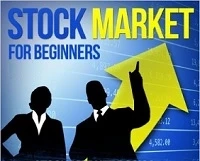Equities or stocks, are financial products that give stockholders ownership holdings in publicly traded companies. It is an actual investment in the business, and if you own all of the company's shares, you have total control over how it is run. The stock market is a collection of such equities that the general public can buy and sell on a number of different exchanges.
How can a beginner get better with the stocks? The stock market courses in Gujarat can help you find out.
Buy the right investment
Anyone may observe a stock which has given good results in the past but it is not possible to predict how a stock will perform in the coming days. You need to be willing to put in a lot of effort to manage your investments and analyse companies if you want to be successful investing in individual stocks. When studying a firm, you should consider its fundamentals, such as earnings per share (EPS) or a price-earnings ratio (P/E ratio), as well as its management team, competitive advantages, financial health, and other factors.
Avoid individual stocks
You must possess information that the forward-looking market hasn't previously factored into the stock price if you want to consistently earn money trading individual companies. An index fund, which can be either a mutual fund or an exchange traded fund, is a substitute for individual equities (ETF). Many equities are held by these funds. Additionally, not matter how mess number of shares you buy, you get ownership of every company on the index.
Create a diversified portfolio
Diversification is important because it reduces the possibility that any one stock in the portfolio can materially affect the overall performance, which might increase the entire invested amount. If you buy only one stock, on the other hand, you are having all of your resources and chances of win or loss from one area. The most recommended way to create a broad portfolio is to buy an ETF or mutual fund.
Be prepared for a downturn
The hardest hurdle for most of the investors is accepting the loss on their investments. The volatility of the stock market will result in losses on occasion. To handle these losses, it is important that you can maintain your calm. Otherwise, there will be wrong buying and selling decisions. As long as you diversify your portfolio, no single stock you own should have a substantial impact on your performance as a whole.
Try a stock market simulator
One way to get into the world of trading without incurring any risks is to use a stock simulator. If you use an online virtual trading account, your real money is not at danger. You can then choose how you would react if you genuinely stood to gain or lose money. Make sure to look for the right stocks by taking into account your investment goals.
Choose long-term portfolio
Setting up a calendar and deciding in advance when you'll be analysing your portfolio is one method for novices. By adhering to this rule, you'll avoid selling out of a stock during a period of market turbulence or failing to reap the full rewards of a profitable investment.
Start now
Frankly, there is no ‘best moment’ to start investing in stock market. Any time is the best time if you know what and where to put in your money. Additionally, investment is a long-term endeavour. There is no ideal moment to begin. One of the most important things about investing is to really start doing it, not just thinking about it.
Avoid short-term trading
Short-term investors can have irrational expectations about their ability to expand their money. And the reports show that majority of short-term investors, which also include the day traders, lose money if they are not thorough with their trading. You're up against powerful investors and smart computers that might know more about the market.
Keep investing over time
Keeping a portion of your income aside with strong saving discipline so you can invest it in the stock market is a great practice. You'll be able to invest more money and accelerate the growth of your wealth.
Reach out to https://finwingsacademy.com/ for more details on stock market.
0


